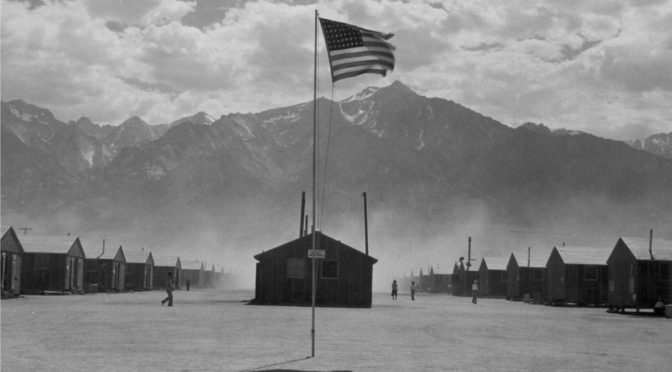Dan Maurer’s essay argues that a complete scrutiny of norm-breaking and “crises” within strategic-level American civil-military relationships ought to consider more than the impact of the breach or the value of the actor’s apparent justification for transgression. Rather, considering how an actor understood the norm, and whether he or she accepted it before breaching it,… Continue reading Paved with Good Intentions?: Civil-Military Norms, Breaches, and Why Mindset Matters
Category: The Constitution
Requiem for Korematsu?
Stephen Dycus reviews Professor Eric K. Yamamoto’s timely book In the Shadow of Korematsu: Democratic Liberties and National Security, published just weeks before the Supreme Court decided Trump v. Hawaii. Dycus draws out the book’s core themes, highlighting Yamamoto’s analysis of the Korematsu decision and its continued relevance in American jurisprudence. The review concludes with… Continue reading Requiem for Korematsu?
Replacing the “Sword of War” with the “Scales of Justice”: Henfield’s Case and the Origins of Lawfare in the United States
The United States government’s 1793 prosecution of Gideon Henfield represents the first instance of the lawfare engaged in by the fledgling government. Over the course of the decades that followed, criminal prosecution became a default selection for addressing national security threats. This article examines how the Washington Administration utilized law as a weapon to defend… Continue reading Replacing the “Sword of War” with the “Scales of Justice”: Henfield’s Case and the Origins of Lawfare in the United States



